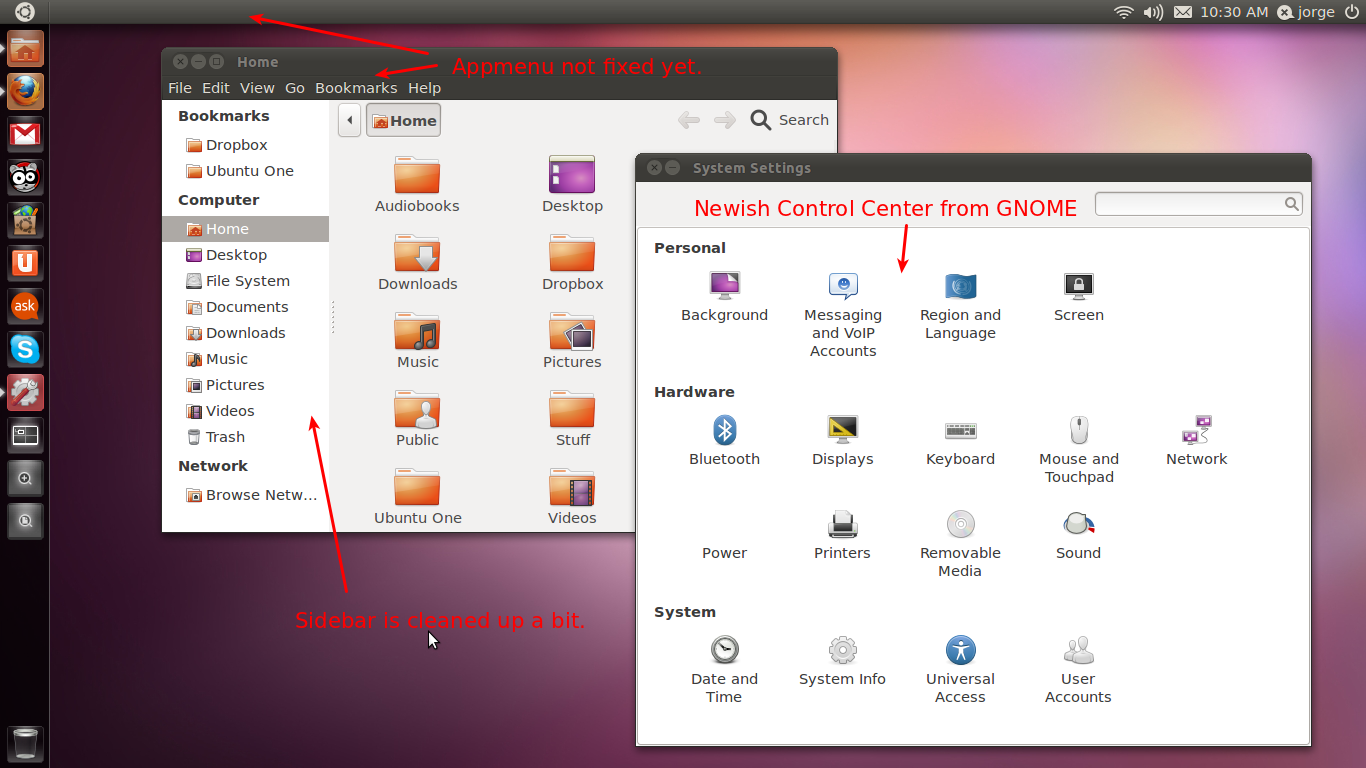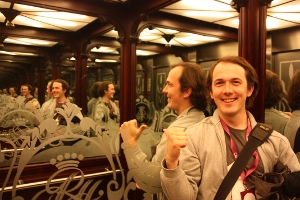This is the Unity weekly report for 22 June. We’re sliding into the week before the Ubuntu Platform Rally in Dublin, Ireland, and after that we’re in Alpha-2 mode, so the team is getting a bunch of house cleaning out the way. In many ways, this should be the last super-boring Unity report as things will get more exciting from here on out, as such we continue to chip away at the rock.
Unity Contributor Activity This Week
Andrea Azzarone’s made the bottom of the launcher unfold where you left it last, which is a backlog bug from last week. Daniel van Vugt added unmount/eject/remove quicklist options for external drives in the Launcher, and lastly Marco Trevisan has proposed a bunch of miscellaneous fixes in BAMF. Other branches for incoming fixes are in the review queue.
The team also had it’s first team meeting where people made introductions and went through some reviews together to get them landed. Feel free to join us, every Wednesday at 1800UTC on #ayatana-freenode.
Things going on in Oneiric
There’s actually a ton of work going on in Oneiric. By the time you read this Unity 4.0 should be hitting the archive (if not, the day after). This includes a port to GTK3 by Gord Allott, Neil Patel, and Bilal Akhtar. Neil also reorganized the source code a bit. And application indicators have also been ported to GTK3 by Michael Terry and others. This will be the platform that 11.10’s Unity will be built on, so it’s all been mostly boring-looking plumbing work that needed to get done. Here’s a picture of my desktop with some of the changes:

You can find this and other stuff going on in Oneiric by checking out the desktop team report.
The Big List
Here’s a list of targeted bugs that the design team has picked out as a result of user testing and feedback that would make Unity nicer to use. Here’s the full list if you want to dig in.
- 676453 Launcher – Add ‘installing’ animation for when app is installed via drag & drop
- 616866 Installation of apps by dragging them to the launcher
- 750375 Dash – Cursor navigation allows the user to keep scrolling down indefinitely
- 723866 Dash file Lens – Rename “Favourite Folders” category header to “Folders”
- 765715 Launcher – When a app icon de-couples from the Launcher a small shadow should appear on the bottom and right sides of the icon
- 767272 Top bar menus – there should be a very quick and subtle fade out/in effect when a user shifts from one menu to another or closes a menu
How to Get Involved
1. Get the Code
Follow the Step by Step Instructions and Wiki Page. This will get the code from Launchpad, set up your development environment, and getting you used to the Launchpad workflow.
2. Pick a Bug
Here’s the full list, or you can just join the team and watch them roll in and pick what you’d like.
3. Fix your bug and then get your code into Unity
Don’t worry we won’t leave you hanging, you can get a-hold of a Unity developer through many different ways:
- Join the ~unity-community-hackers team and start digging in.
- We now have a Weekly Meeting at 1800UTC on #ayatana on Freenode IRC if you feel like hanging with us and getting organized and ask questions
- #ayatana on freenode IRC during European and American workdays. Or you can post to the mailing list if you have a question.
- We also have weekly IRC Q+A for any developer who wants to dive in and ask a Unity developer. 7pm-8pm UTC (That’s 2pm EST) every Friday!
![]()
![]() Except where otherwise noted, content in this issue is licensed under a Creative Commons Attribution 3.0 License BY SA Creative Commons License
Except where otherwise noted, content in this issue is licensed under a Creative Commons Attribution 3.0 License BY SA Creative Commons License
